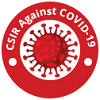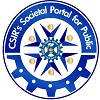Preamble
With the initiative of Government of India on liberalization, globalization and privatization, boom in the construction industry has come to this country. In the last few years the country has seen the construction of golden quadrilateral in the road sector and massive development in the housing sector. The east – west corridor in the road sector is further facilitating the movement of traffic and the goods from one end of the country to the other. With huge shortage of housing in all the economic sectors and the importance attached to the growth and development of the housing sector in the country it is expected that the country is going to see a new horizon in the housing industry in near future. The concept of affordable housing is fast catching up in the country.
Recognising the importance of both housing and roads, the Central Building Research Institute, Roorkee (CBRI) one of the prime laboratories of CSIR is offering the Ph.D programme in Engineering Sciences in the areas of Structural Engineering, Geotechnical Engineering, Chemical Sciences and Environmental Engineering. Drawing from the rich experience of scientists working in the laboratory, the course work is designed to offer the research scholars sound theoretical knowledge and practical site experience. Such a unique opportunity is seldom available in the country.
Adequate hostel facilities both for the girls and boys are available in the campus.
Number of Seats in the Programme
The total number of seats available is 5 (Five).
Eligibility for Admission
Ph.D. (Science): Master’s degree in Earth Science (Geology / Geophysics) or Chemistry ( Inorganic / organic / polymer) or Master’s degree in Material Science with specialization in corrosion science having a valid National level fellowship (JRF/SRF of various funding agencies, e.g. CSIR, UGC, DBT, DST etc.), INSPIRE or other equivalent fellowships.
Ph.D. (Engineering): A Master’s degree in Engineering / Technology (Civil – Structural, Geotechnical) or a Bachelor’s degree in Engineering/Technology (Chemical / Metallurgical) with M.Tech in Corrosion Science / Engineering with a valid GATE score or UGC/CSIR NET/NBHM or valid CSIR-SRF or equivalent fellowship.
Weightage of marks during the semester
There will be one mid-semester and one end semester examination. Before and after the mid-semester examination there will be two class tests. The end semester examination will have 40% weightage. The mid semester examination will have 30% weightage and the two class tests will have 10% weightage each. The balance 10% weightage will be given to the seminar, tutorial, general discipline etc in respective subjects.
Credit requirement
Minimum Credit requirement for Ph.D is 16. 12 credits have to be earned through course works. At least one course is to be from 700 level. In addition to the course works, candidate has to complete project – duration varying from six to eight weeks in rural areas keeping in line with the philosophy of CSIR 800 project scheme. Project will have 2 credit. Additionally candidate has to write two project proposals.
For PhD Thesis work
- Doctoral Advisory Committee (DAC)
- AcSIR Laboratory Coordinator in consultation with the Director of the laboratory shall constitute the Doctoral Advisory Committee for each candidate as soon as the thesis supervisor(s) is/are assigned with approval of Dean & subsequent ratification by Senate Chairman.
- In addition to thesis supervisor(s), the committee shall have three more members – two members from the same research area as recommended by the supervisor(s) and one member nominated by the Director of the Institute from different field of research.
- The doctoral advisory committee shall review the progress of the research work on continuous basis and meet at least once in each semester. They shall advice on the next course of action. The committee also recommends when to submit the thesis.
- The coordinator shall report to dean about the detail of the committees and obtain necessary approval from time to time.
- Comprehensive Examination
- A student is eligible to appear at the Comprehensive Examination only after he/she has successfully completed all course requirements with more than the minimum CGPA.
- The Comprehensive examination board shall consist of minimum three members –thesis supervisor(s), one member from the same field of research and one member from other than the candidate’s field of research. The board can have a maximum of five members.
- Based on the proposal of the supervisor(s), the Comprehensive examination board would be formed & approved for each student by the Dean with subsequent ratification by the Senate chairman.
- The candidate in consultation with the thesis supervisor(s) shall appear for oral comprehensive examination in between 2nd and 4th semester. If the candidate fails to clear the comprehensive examination in two attempts, his/her provisional PhD registration would be cancelled.
- The Comprehensive examination will consist of presentation by the candidate followed by rigorous oral examination. The recommendation of the board would be in the form of “Cleared” or “Not Cleared”.
- State-of-the-Art and Open Seminar
- The PhD candidate needs to present the State-of-the-Art in a seminar (open) along with PhD proposal in presence of Doctoral Advisory Committee within six months after clearing the Comprehensive examination.
- The PhD candidate shall present his research work in PhD colloquium (Open Seminar) in presence of the DAC members, before synopsis and thesis submission.
- PhD synopsis along with the thesis hard copies (five numbers) & soft copies shall be submitted to laboratory coordinator on recommendation of the DAC and after incorporation of all suggestion, if any.
- The notification of the open seminar shall be circulated by the thesis supervisor in consultation with members of the Doctoral Advisory Committee.
- PhD Thesis Evaluation
- A PhD thesis shall be first evaluated by a Thesis board and thereafter by an Oral Board.
- The thesis advisor(s) will submit the panel of examiners, normally six experts from the relevant field, to Dean through AcSIR coordinator. None of the examiners shall be from the same Institute.
- The senate chairman shall constitute the thesis board by selecting two examiners from the above list.
- The examiners shall be contacted through email for their acceptance.
- The thesis report from examiners shall be communicated to the respective Deans for endorsement by the laboratory coordinators.
- Based on the report of the thesis examiners, the DAC shall recommend the next course of action i.e. recommendation for holding oral examination or rework.
- Thesis oral examination board (OEB) shall be constituted by the Senate Chairman on recommendation of the thesis supervisor. The OEB will have minimum three members – minimum one external member, one DAC member and thesis supervisor(s).
- The PhD candidate shall present his research work physically in presence of the above OEB members. Additional external members may be present in video conferencing mode, if desired.
- The OEB will look after whether or not the essential modifications, suggested by the thesis examiners, if any, have been incorporated. The board shall authenticate the thesis work as the student’s own work based on the presentation and responses to the questions raised during oral examinations.
- The candidate is considered to have passed the oral examination if all the members except at the most one member consider that the performance of the candidate is satisfactory.
- The committee may recommend re-submission of the thesis at most once after incorporating the suggestions made by the committee for evaluation.
- In the rescheduled oral examination, the OEB must declare the candidate either to have passed or failed. There shall not be any recommendation for third oral examination.






